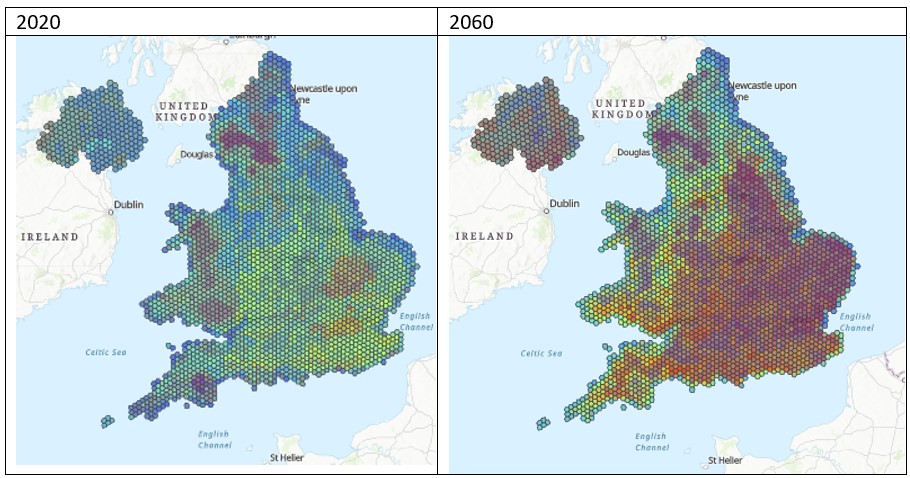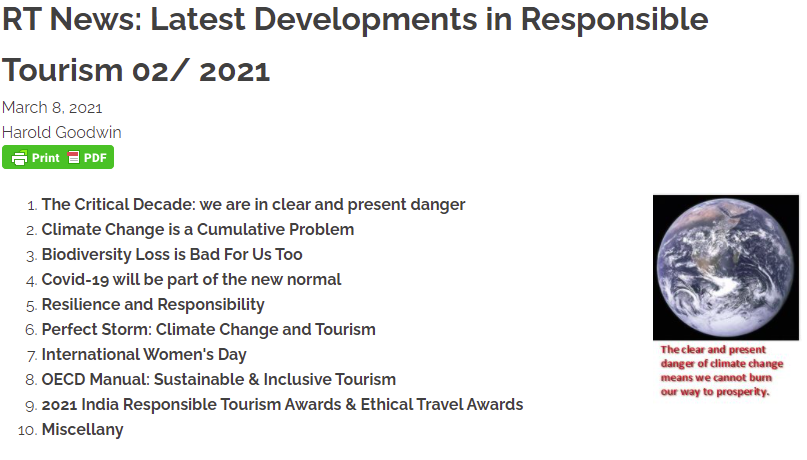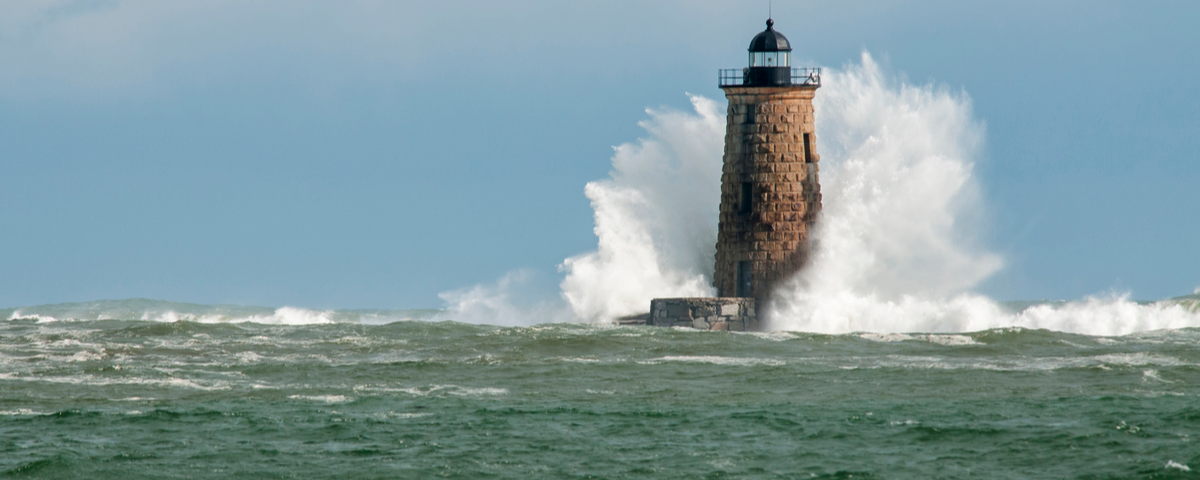The climate emergency is upon us. We need to reduce emissions faster, but we also need to cope with the consequences of our failure to act over many decades. We failed to deliver sustainability because not enough of us took responsibility; now we face the consequences. Business as usual is not a viable strategy in the world we have made.
The International Monetary Fund published a Working Paper entitled ‘Perfect Storm: Climate Change and Tourism in November‘ last year. They pointed out that “climate change remains a greater existential threat to vulnerable countries that are highly dependent on a weather-sensitive sector like tourism.” Analysing data from 1995-2017 from 15 Caribbean countries shows that climate vulnerability already has a statistically and economically significant adverse effect on international tourism revenues across the region. As it is expected that climate change will result in significantly more frequent and powerful storms, the economic impacts and the threat to lives and property have to be expected to worsen.
Last month Sir James Bevan, chief executive of the UK’s Environment Agency, said that in recent years several ‘reasonable worst-case scenarios’ had happened in the UK, with more extreme weather and flooding, and urged politicians to reduce emissions and adapt to the ‘inevitable’ impacts of the climate emergency. Bevan was speaking at the annual conference of the Association of British Insurers.
“Much higher sea levels will take out most of the world’s cities, displace millions, and make much of the rest of our land surface uninhabitable or unusable….Much more extreme weather will kill more people through drought, flooding, wildfires and heatwaves than most wars have.
“The net effects will collapse ecosystems, slash crop yields, take out the infrastructure that our civilisation depends on, and destroy the basis of the modern economy and modern society.
“If [this] sounds like science fiction let me tell you something you need to know. This is that over the last few years the reasonable worst case for several of the flood incidents the EA has responded to has actually happened, and it’s getting larger.
“That is why our thinking needs to change faster than the climate. And why our response needs to match the scale of the challenge.”
Bevan concluded by saying that we must put the same effort into tackling the ‘unseen pandemic’ of the climate emergency that we have into the fight against the COVID crisis. “We will get the environment we pay for, we will get the climate we work for.”
A few days later, the UK’s National Trust published the results of a study looking at the likely ‘worst case’ scenarios for the impact of climate change on the temperate UK. I realise it will be much worse in the Global South. People in the Global North need to realise that it is their problem too. The maps in their report starkly illustrate the change that will result from the climate emergency we have created.

On current trends in 2060 in south-east England, a third of National Trust sites would experience temperatures above 30C (86F) on at least 15 days a year. Storm damage, landslides, and flooding would become common and more widespread, particularly in the north of England and Wales. Coastal erosion and flooding will increase in Northern Ireland, potentially leading to more landslides around locations such as the Giant’s Causeway
Blackrock manages more assets than any other investment manager delivering long-term value for the clients and shareholders. Their latest report, ‘Sustainable investing: Resilience amid uncertainty‘ reaffirms their view that: “Combining traditional investing with environmental, social, and governance-related (ESG) insights to improve[s] long-term outcomes … Companies with strong profiles on material sustainability issues have potential to outperform those with poor profiles. In particular, … companies managed with a focus on sustainability should be better positioned versus their less sustainable peers to weather adverse conditions while still benefiting from positive market environments.”
The ResilienceCentre at Stockholm University defines resilience as ‘the capacity of a system, be it an individual, a forest, a city or an economy, to deal with change and continue to develop. It is about how humans and nature can use shocks and disturbances like a financial crisis or climate change to spur renewal and innovative thinking’.
There are individual and collective dimensions to resilience. We should reflect on how prepared we were, with what reserves, when the disaster of COVID-19 struck.
As I wrote back in November 2019 on this site:
“Governments and industry have ignored one call to action after another, delaying action which means that more rapid and expensive action is required. The longer we delay action on reduction, mitigation and adaptation the more expensive it will be. Expensive that is in human lives lost, biodiversity loss and war and migration.”
“It is time to stop talking about the science of climate change. We need to talk about the consequences – climate change is a real and present problem. The impacts are here now. Effects that scientists had predicted in the past would result from global climate change are now occurring: loss of sea ice, accelerated sea-level rise and longer, more-intense heat waves.”
As I write this, again, I am reminded of the words of Primo Levi: If Not Now, When?
We are not reducing emissions or adapting to their consequences fast enough.



